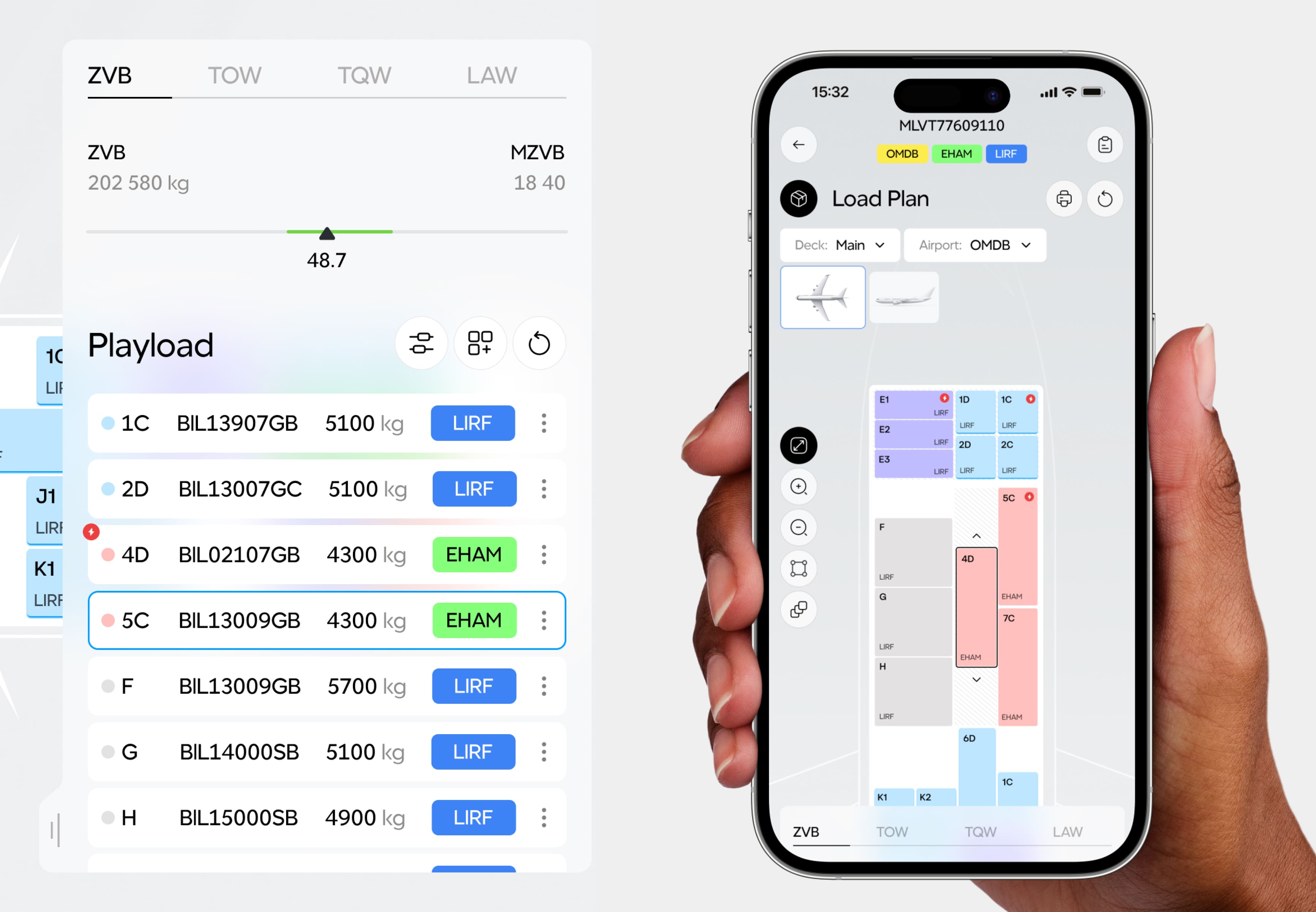
Air Cargo
Air Cargo is a system for managing aircraft cargo loading, enabling airlines to streamline operations. It offers a visual interface to optimize cargo placement, considering weight, dimensions, and safety regulations
Let's expand on the two identified problems that a cargo-plane load management system can address, and add a third relevant issue based on common challenges in air cargo operations.
- Reducing Human Error (30%): Human error accounts for approximately 30% of incidents in air cargo shipments, leading to delays or damage. These errors often occur during manual cargo loading, such as miscalculating weight distribution, overlooking safety restrictions, or improperly securing cargo. A cargo-plane load management system mitigates these issues by automating the loading process with a visual interface. It ensures accurate weight and balance calculations, adheres to safety regulations, and provides real-time feedback to ground staff, significantly reducing the risk of delays or damaged goods.
- Minimizing Last-Minute Route Adjustments (20%): Around 20% of air cargo flights face last-minute route adjustments due to air traffic control restrictions or weather events. These changes can disrupt cargo loading plans, as planes may need to offload or rearrange cargo to meet new weight or fuel requirements. The system addresses this by allowing quick re-optimization of cargo placement. It can simulate different loading scenarios based on updated flight conditions, ensuring compliance with new restrictions while minimizing delays and maintaining flight schedules.
- Optimizing Space Utilization: Inefficient use of cargo space is a common issue in air cargo operations, leading to underutilized flights and increased operational costs. A cargo-plane load management system tackles this by maximizing space efficiency through intelligent cargo arrangement. It considers the dimensions and shapes of cargo, fitting them together like a puzzle to ensure the plane's hold is used to its fullest potential. This optimization reduces the number of flights needed, lowers fuel costs, and increases overall profitability for airlines.
These enhancements collectively improve the reliability, safety, and efficiency of air cargo operations.

The application smartly distributes parcels within the plane's cargo hold, enhancing space utilization by considering size, weight, and destination. This adaptive allocation strategy reduces wasted space, ensuring each flight operates at its maximum load capacity. By dynamically adjusting parcel placement, the system accommodates varying cargo configurations, minimizes empty areas, and optimizes overall efficiency for every journey.

The system evaluates multiple factors, such as fuel efficiency and delivery schedules, to recommend the most cost-effective and timely routes for cargo transportation. By analyzing these elements, it ensures optimal flight paths that reduce fuel consumption while meeting tight delivery deadlines, ultimately lowering operational costs and improving reliability for airlines.


Will continue...








